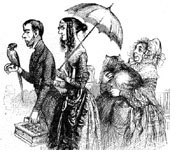
The Things They Auctioned
GUEST COLUMN
The first hickory nut fell Thursday: a lime-shaded, rust-streaked shell not yet cracked, not yet discovered by squirrels for winter storage. The approach of the fall season was as surreptitious as ever: full sun, startlingly blue skies, “the wind at your back,” omnivalent green landscape punctuated only by the riot of color of late summer flowers.
He decided to go to an auction Saturday.
The setting was idyllic: a lightly graveled, sand-colored road leading from the town, winding through steep, deeply wooded hills on the right, while on the left a dark creek wandered from edge to edge of the valley, which it had eroded over the ages from the hills yet beyond it. Oak, walnut, hickory, maple, and a sprinkling of birch kept the morning sun at an appropriate distance. Every half-mile or so, homes had been carved into the woods, or set on land laid level by the creek.
The site was mechanical: a pre-manufactured house sitting on a standard cement-block foundation. The steel-sided, roofed, and structured shop and garage extended the sense of geometry and factory across the rural, non-farm lot. The site had been designed for the enjoyment of those whose senses had once been blighted by the power and imminence of the city. Its landscape was something incidentally entertaining, visually consumable, like the electronic media that dominated the “inscape” of the house.
The sale goods were typical: machines for keeping the grass down and the forest back sitting studded in neat rows, awaiting the auctioneer’s attention. Furniture of uncertain design and construction lingered vagrantly in semi-aligned rows, which segued into a series of flatbed farm wagons littered serendipitously with domestic debris and shop castoffs.
You May Also Enjoy
How long can an ideology last when it is based on the demonization of entire sections of the population and on making oneself miserable in the process?
Could the continued separation of Christians into like-minded, like-colored pockets, or "bubbles," be a factor in racial inequality, racial tension, and overall injustice?
A meritocracy fits America’s sense of itself as free from the class-based social structures that defined the European countries from which our predecessors fled.

